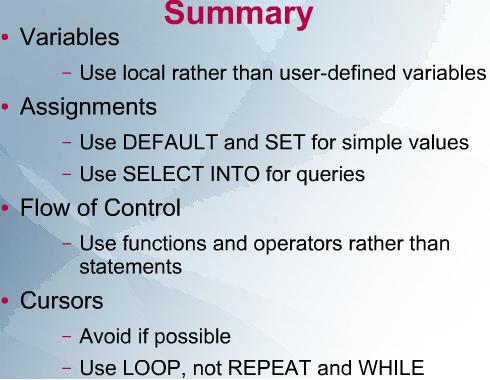It is a bit confusing that MySQL function supports return statement but stored procedure does not.
However there is LEAVE statement which can serve the same goal:
this statement is used to exit the flow control construct that has the given label. It can be used within BEGIN … END or loop constructs (LOOP, REPEAT, WHILE).
For example the stored procedure below returns the passed number only if it is non-zero:
DROP PROCEDURE IF EXISTS TestProc;
CREATE PROCEDURE TestProc
(
vTestNum INT
)
TOP:BEGIN
IF vTestNum = 0 THEN
LEAVE TOP;
END IF;
SELECT vTestNum;
END; |
DROP PROCEDURE IF EXISTS TestProc;
CREATE PROCEDURE TestProc
(
vTestNum int
)
TOP:BEGIN
IF vTestNum = 0 THEN
LEAVE TOP;
END IF;
SELECT vTestNum;
END;
 Comments(0)
Comments(0)